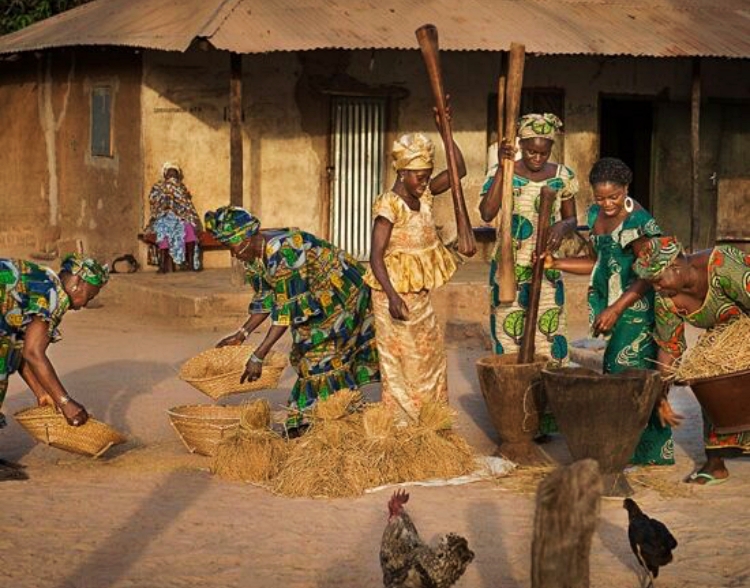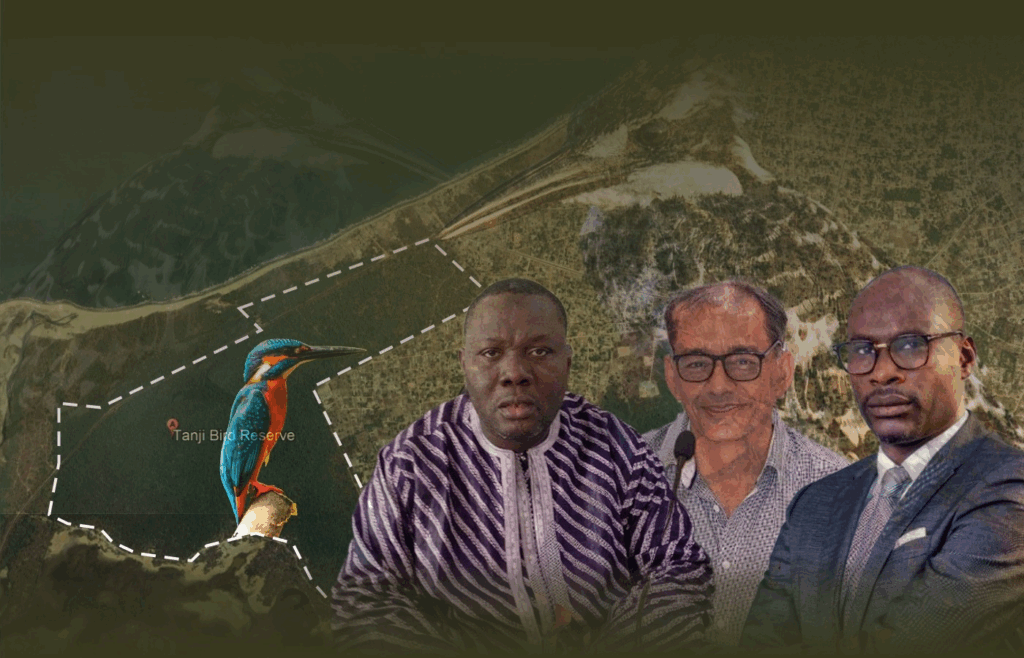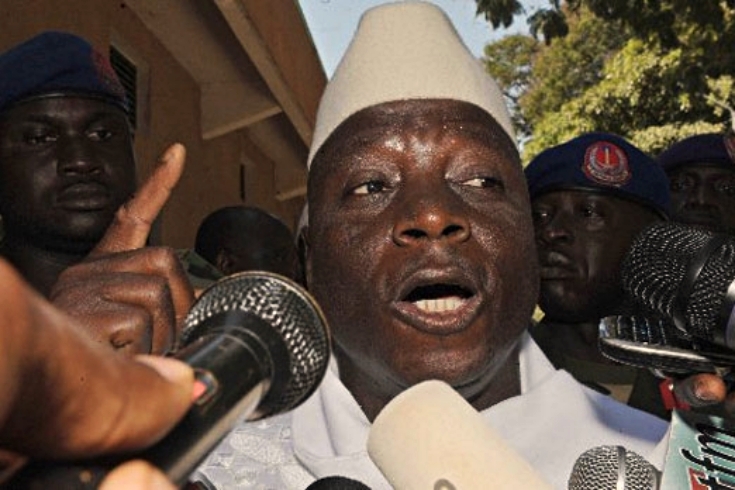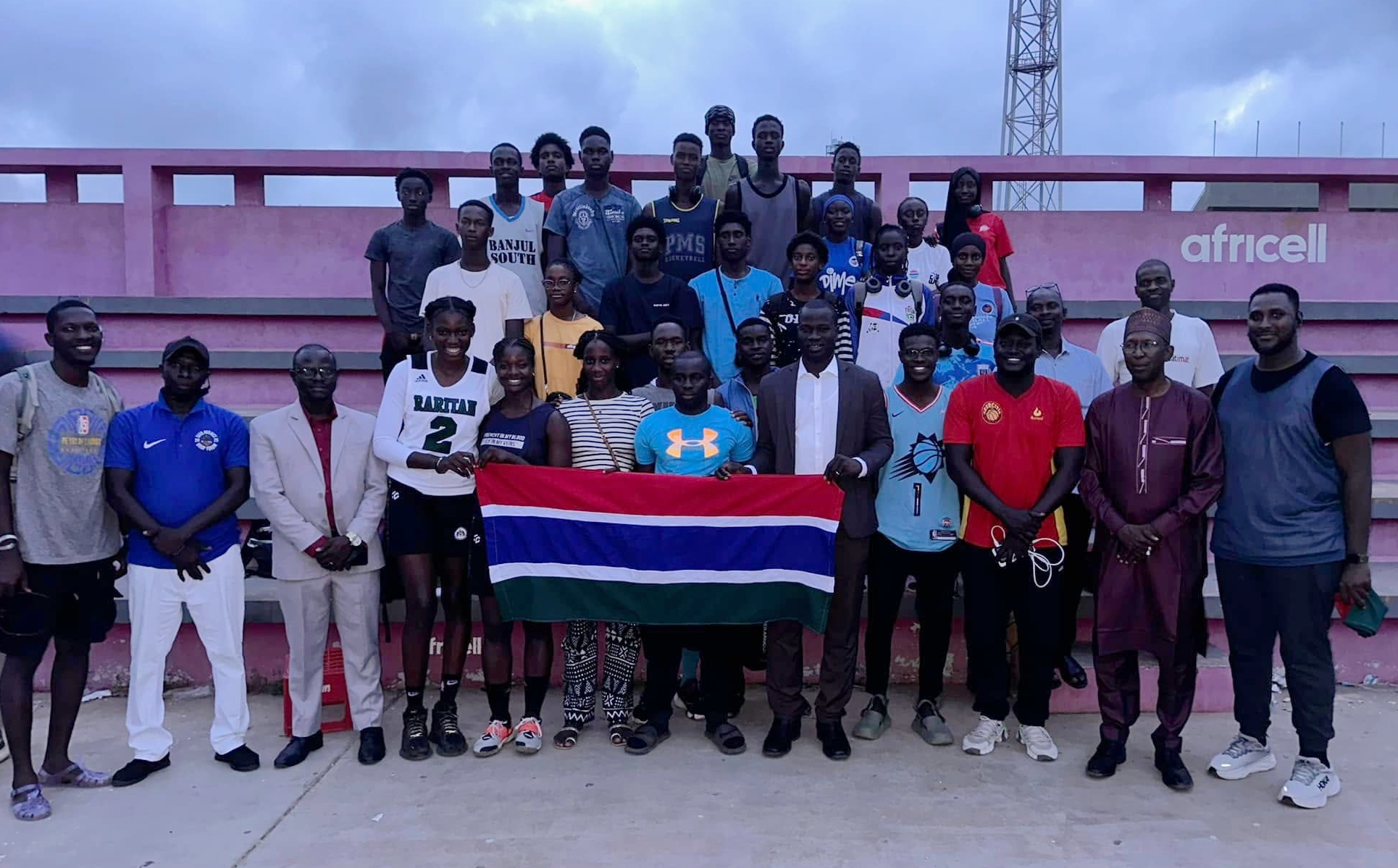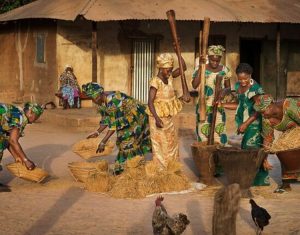Gambiaj.com – (TANJI, The Gambia) – Every morning at first light, forest ranger Baba Janneh stands silently at the edge of the Tanji Bird Reserve, scanning the skies for movement. On one such morning last September, a white-backed vulture glided silently above him. “Some days, she stays in the sky longer, looking, circling before she finds a place to rest,” he said.
But the vulture’s sanctuary—and that of hundreds of other bird species—is under threat. After a decade of observing the delicate rhythms of Tanji’s birdlife, Janneh has noticed “some strange changes.” Conservationists say these disruptions are the result of unchecked encroachment, driven by real estate and hospitality interests.
The Tanji Bird Reserve, covering 612 hectares and home to over 300 bird species, many of them endangered, is facing growing pressure from poachers, firewood collectors, and, increasingly, developers.
President Adama Barrow had pledged to reverse environmental violations committed under Yahya Jammeh. Yet under his government, protected areas like Tanji continue to face unprecedented threats.
The latest danger comes in the form of land allocations. According to documents obtained by investigative outlet Malagen, several high-profile individuals—including lawyer and politician Essa Faal and Indian businessman Nandkishore Rajwani—have been allotted parcels of land within the Reserve.
From Jammeh’s Personal Gifts to Barrow-Era Deals
The saga began in 2012, when ex-President Yahya Jammeh carved out 25 hectares of the reserve and gifted them to Nadiany Bamba, wife of former Ivorian President Laurent Gbagbo. After a falling out, Jammeh reclaimed the land and reallocated it to his mother and companies tied to him, like Kanilai Family Farms.
The Janneh Commission, which investigated Jammeh’s financial dealings, later found the move to de-reserve the land illegal and recommended that it be returned to the Department of Parks and Wildlife Management.
Instead, the land was placed under the Gambia Tourism Board (GTBoard), which has since parceled it out to private investors.
Essa Faal received 3.1 hectares and told Malagen his planned eco-resort would create jobs and promote conservation. Rajwani, who reportedly operates under multiple aliases and company names, received at least four plots, including 1.15 hectares in Tanji.
An audit found his allocations to be riddled with procedural breaches, including being approved before formal application and without proof of funding.
Senegalese businessman and political financier Khalilou Wague was also named as an allottee, though he has not responded to inquiries.
A Disputed Legal Ground
The GTBoard insists the allocations fall within a tourism development area (TDA). But conservationists and park officials say the land is firmly within the legally established boundaries of the Tanji Bird Reserve, as defined in the 1993 Reservation Order and confirmed through GPS mapping by Malagen.
“The GTB knows the place is part of the Bird Reserve and all the allocations are illegal,” said a senior official at the Department of Parks and Wildlife, who spoke anonymously due to fear of repercussions.
Despite repeated requests for legal clarification since 2021, the Attorney General’s Office has not responded. Meanwhile, the GTBoard has refused to publicly share allocation details, citing privacy concerns.
Faal disputes the claims. “Reservation areas are created by law… They are not wished into existence,” he said, adding that the GTBoard holds a valid lease.
But field verification by Malagen—alongside ranger Janneh—confirmed that the allocated plots lie squarely within protected boundaries.
“The Birds Will Die”
The stakes are high. Tanji is not just a haven for birds—it is the crown jewel of Gambia’s birdwatching tourism, drawing thousands of eco-tourists annually. More than 70 percent of visitors to The Gambia cite birdwatching as a key interest.
Dr. Sambou, an ecologist, stressed, “Tanji is more than just a bird sanctuary. It’s a living, breathing system. If we lose it, we’re not just losing birds—we’re losing part of our national ecological identity.”
Essa Faal insists his resort will be eco-friendly and a model of responsible development. But environmentalist Omar Malmo Jr. counters that such developments, regardless of their branding, would compromise the ecosystem.
“The Reserve is not connected to any other forest where the animals can use it as a corridor to move,” he said. “Therefore, they will all die.”
So far, youth from nearby Brufut and the Reserve’s rangers have successfully prevented any construction from starting. They continue to guard the land and turn away developers—holding the line between conservation and encroachment.
As vultures circle the skies above, the real predators may be those carving up what remains of Gambia’s natural sanctuaries.

